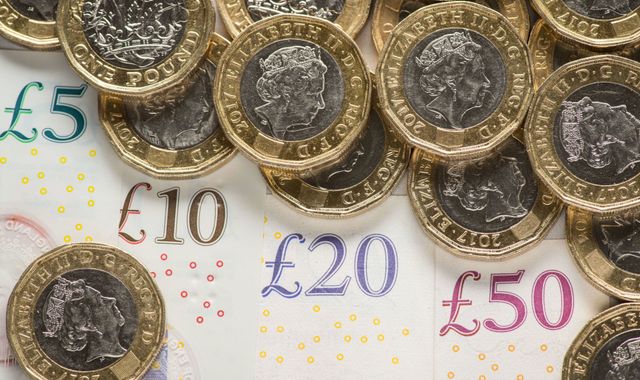Household net wealth surges to £14.6tn, but debt grows too
Written by News on 05/12/2019
The net wealth of British households has surged 13% in real terms, according to official figures.


In a series of wide-ranging reports covering the state of personal finances, the Office for National Statistics (ONS) credited increases in private pension and net property wealth for the increase to £14.6tn.
But it charted too a 4% increase in total household debt to almost £1.3tn – a figure also adjusted for inflation.
Unsecured borrowing was up 11%, leaving the average household with £9,400 of non-mortgage debt.
The research covers the two financial years from April 2016 to March 2018 – with the findings compared to the previous two years from April 2014 to March 2016.
The ONS calculated no change to total wealth inequality because average wealth rose by the same percentage figure in its measurement of wealth sub-categories over both two-year periods.
It said those in the highest wealth bracket saw average rises of 11% during the two periods while the poorest took in an average of 3% more.
The wealth report did, however, point to growing inequality in net property wealth and net financial wealth since 2006 though it said the gap in pension wealth had fallen as more people are now obliged to save.
Median household wealth was calculated at £286,600 – a rise of 9%.
The figures were released as the UK prepares to vote in the general election next week.
The economy has, as usual, proved a key battleground for the political parties in their promises to voters.
Sarah Coles, a personal finance expert at Hargreaves Lansdown, said the ONS figures highlighted an enormous burden of debt.
In her advice she said: “If you’re not shopping around for utilities, media, mobile, broadband and groceries it’s a good place to start.
“If you’ve already done these easy steps, you may need to make tougher decisions about lifestyle sacrifices you can make to cut costs. You can then use any money you free up to start paying off your most expensive debts.
“While you’re repaying, it’s pointless forking out more than you need to in interest, so consider switching somewhere like a low cost loan or a credit card with a 0% introductory period, to save.
“The only proviso is that you can’t see this as an excuse just to spend more money or you’ll end up doing more harm than good.”
(c) Sky News 2019: Household net wealth surges to £14.6tn, but debt grows too







